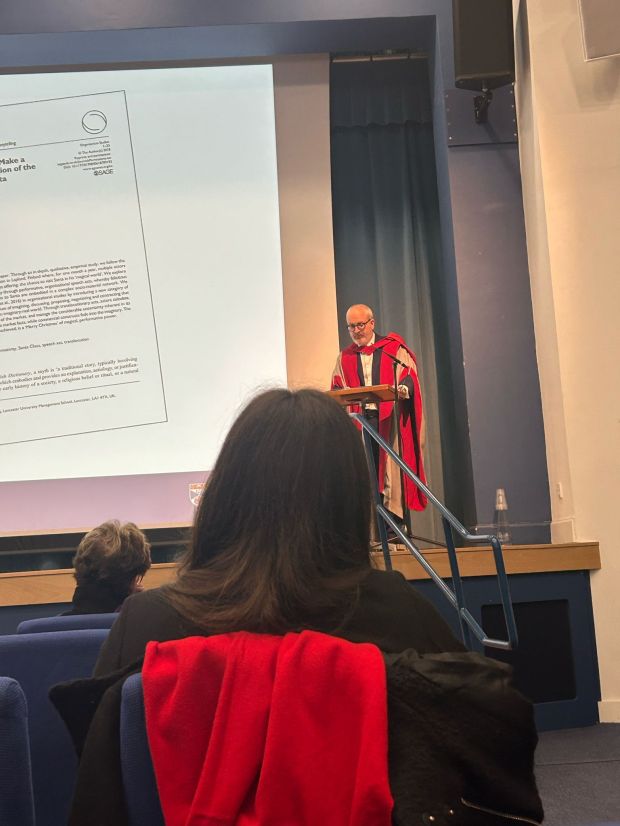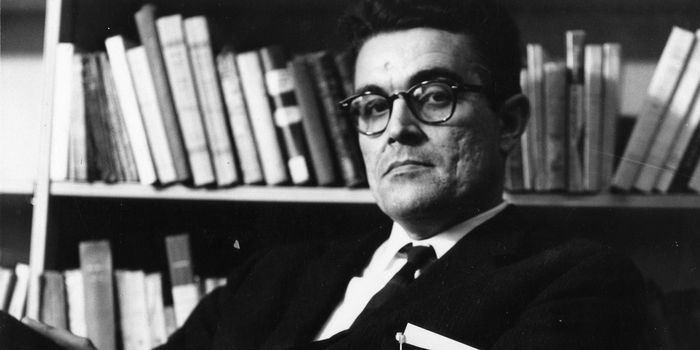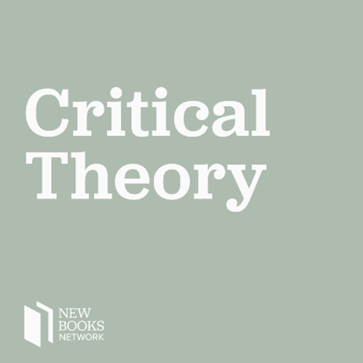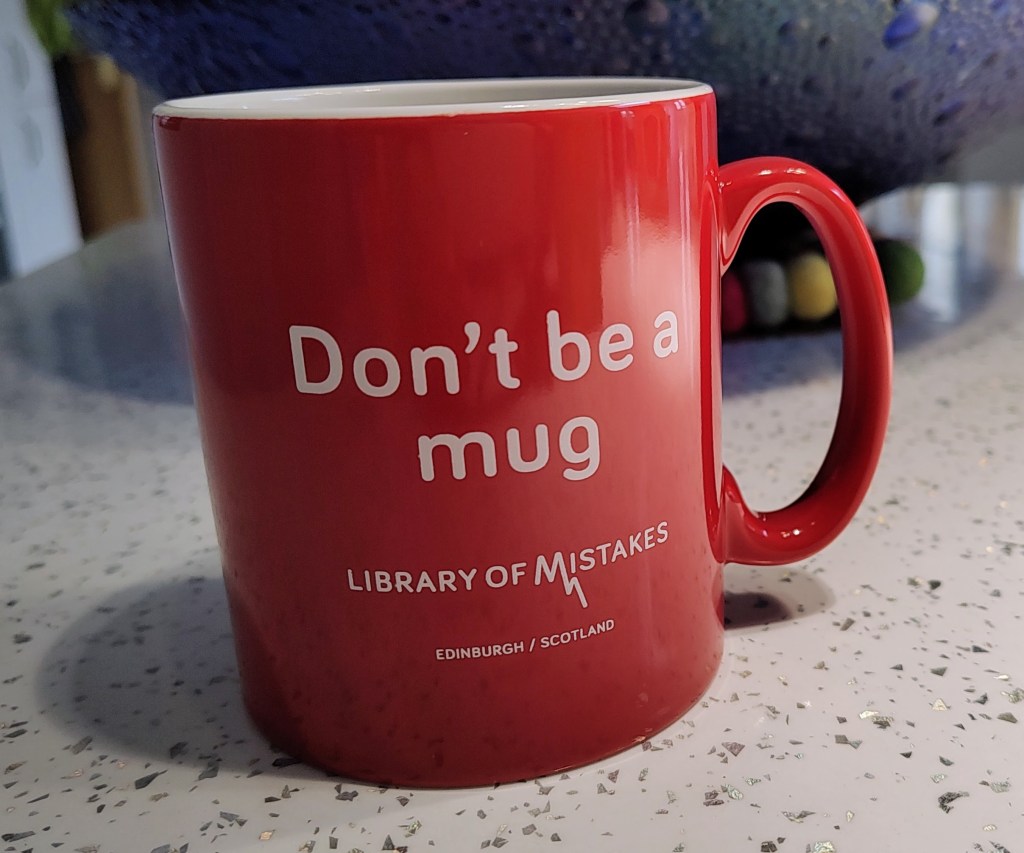In Sptember 2025 I was delighted to be invited to spend two days with the Science and Technology Studies group at DTU Management. Great conversations, great hosts, and a hired green bicycle to enjoy Copenhagen in the autumn sunshine (it’s a long ride to Lyngby, but so much nicer to be on the bike than the metro). Meetings, a publishing workshop for the ECRs, and a talk on the ‘Apocalyptic futures of the economy’, a topic that I’ve been working on for a while. I’m trying to figure out what all the craziness and second-rate sci-fi references mean for markets (and for those who study them). Something, I’m sure.
Here it is -Enjoy!
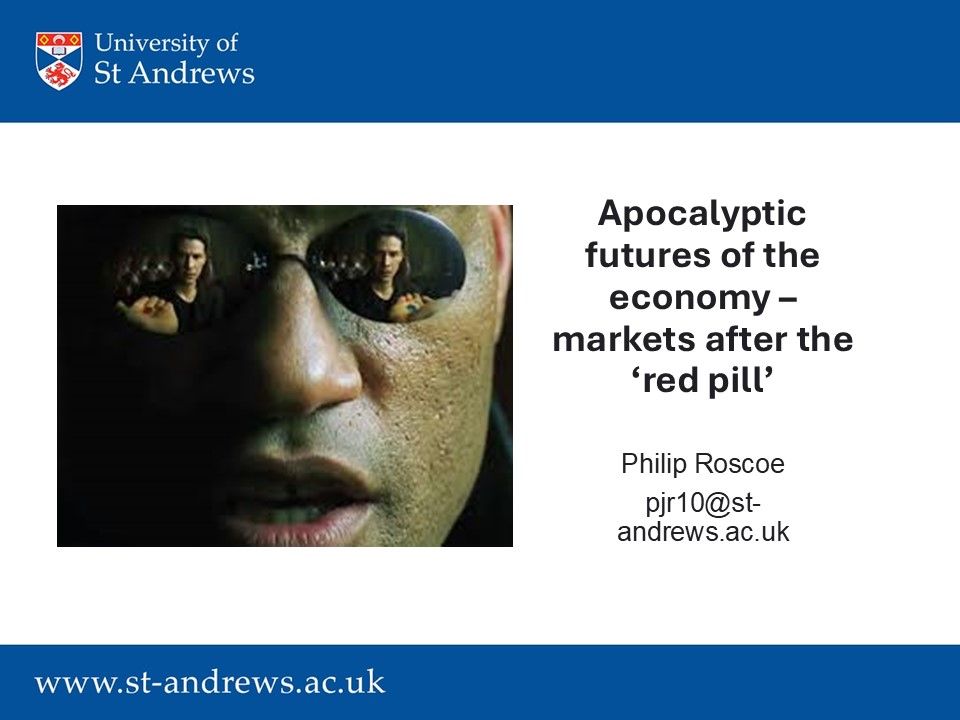
I went to see the Matrix in the cinema in 1999, aged 25, and thought it was, well, ok. It was silly and fun, as was the media fuss about the cast being made to read Baudrillard. How could I have possibly known that it would become such a canonical and toxic point of cultural reference that almost 30 years on I would be putting it on a slide to talk about bogus economics. But here we are: in the midst of a cluster of ideas about economic organization that can only be made sense of through bunkum thought articulated in terms of cod-philosophy, sci-fi images, HP Lovecraft and Harry Potter, where you have to rewatch LoTR to make sense of the naming of names. I am always already too old for this nonsense.
Continue reading “On the apocalyptic futures of the economy – markets after the ‘red pill’”
